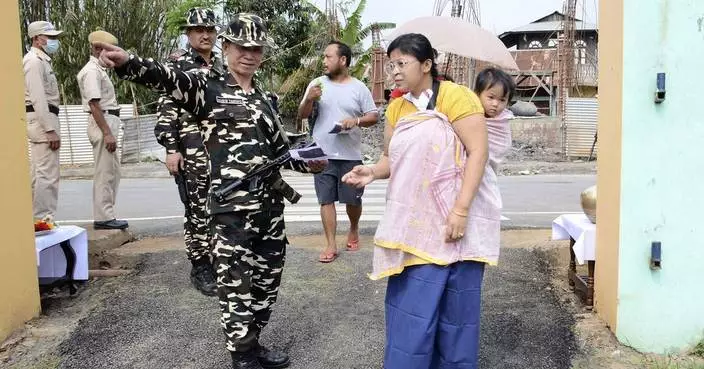Thousands of Iraqis — most of them not wearing protective masks — took to the streets in Baghdad on Friday in a show of support for a radical cleric ahead of elections next year, stirring fears of a spike in coronavirus cases.
Supporters congregated in the capital's Tahrir Square, once the epicenter of mass anti-government protests, to show their support for Moqtada al-Sadr, who leads a powerful political bloc, ahead of federal elections slated for next June.
Most of al-Sadr's followers stood unmasked in the square, chanting: “Yes, yes for our leader,” in support of the firebrand cleric as Iraq remains a high-risk country for coronavirus infection. The crowd then stood side-by-side for Friday prayers at noon.
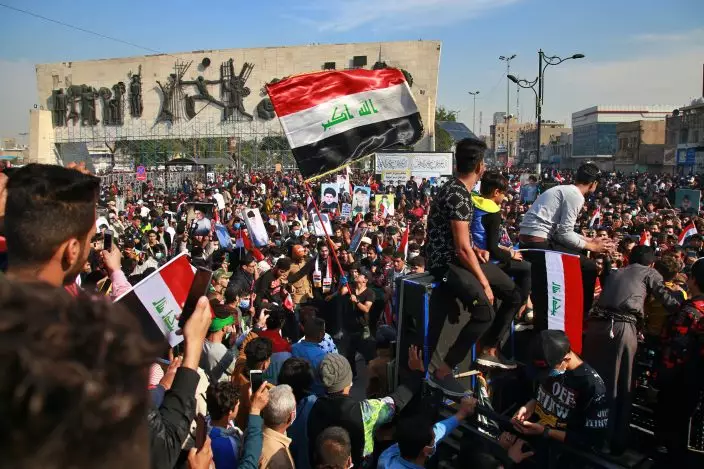
Followers of Shiite cleric Muqtada al-Sadr,gather in Tahrir Square, Baghdad, Iraq, Friday, Nov. 27, 2020. Thousands took to the streets in Baghdad on Friday in a show of support for a radical Iraqi cleric ahead of elections slated for next year, stirring fears of a spike in coronavirus cases. (AP PhotoKhalid Mohammed)
More than 12,000 people have died of the virus in Iraq amid 544,000 confirmed cases, according to Health Ministry figures. Daily infection rates average 2,400 cases per day, but health workers say the number may be higher as many Iraqis with symptoms choose to stay home and avoid hospitals to get tested.
Iraq has the second highest outbreak and number of deaths in the region after Iran.
Al-Sadr leads the Sairoon political bloc, which holds the majority in parliament. He has taken steps in preparation for elections scheduled for June next year. His followers called for a demonstration in support of the leader's call for mass participation in the vote.
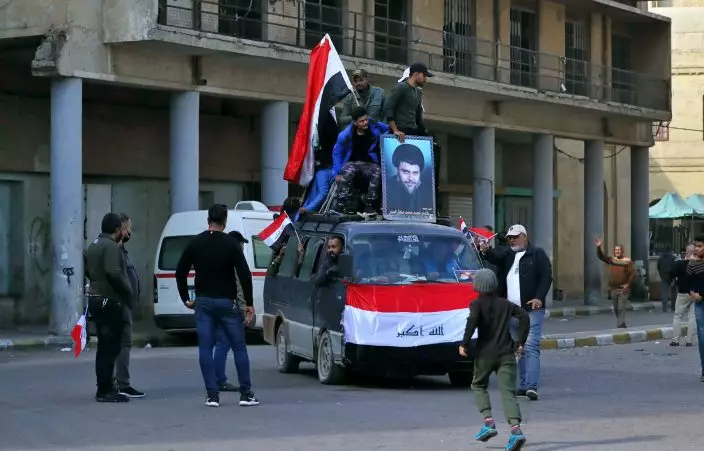
Followers of Shiite cleric Muqtada al-Sadr, in the poster, head to Tahrir Square, Baghdad, Iraq, Friday, Nov. 27, 2020. Thousands took to the streets in Baghdad on Friday in a show of support for a radical Iraqi cleric ahead of elections slated for next year, stirring fears of a spike in coronavirus cases. (AP PhotoKhalid Mohammed)
“The Iraqi people and al-Sadr's followers will have one saying, and that is: Yes yes for Iraq," said Ibrahim al-Jabiri, director of al-Sadr's office north of Baghdad.
Observers consider the protest as a show of mettle by al-Sadr meant to send a message to other political blocs that on Iraq's streets, the cleric still has clout.
Prime Minister Mustafa al-Kadhimi called for elections to take place next June, a year earlier than expected. That was a key demand of anti-government protesters who paralyzed Iraq's streets when tens of thousands demonstrated last October.

Followers of Shiite cleric Muqtada al-Sadr, in the posters, gather in Tahrir Square, Baghdad, Iraq, Friday, Nov. 27, 2020. Thousands took to the streets in Baghdad on Friday in a show of support for a radical Iraqi cleric ahead of elections slated for next year, stirring fears of a spike in coronavirus cases. (AP PhotoKhalid Mohammed)
The elections will take place under a new law approved by lawmakers this year that theoretically will enable more independent candidates to run. Iraq's electoral commission has said it is prepared to hold early elections on time if the government allocates a budget for the vote.
ALEXANDRIA, Va. (AP) — A lawyer for the military contractor being sued by three survivors of the notorious Abu Ghraib prison in Iraq told jurors Monday that the plaintiffs are suing the wrong people.
“If you believe they were abused ... tell them to make their claim against the U.S. government,” said John O'Connor, defense attorney for Reston, Virginia-based military contractor CACI, during closing arguments at the civil trial in federal court. “Why didn't they sue the people who actively abused them?”
The lawsuit brought by the three former Abu Ghraib detainees marks the first time a U.S. jury has weighed claims of abuse at the prison, which was the site of a worldwide scandal 20 years ago when photos became public showing U.S. soldiers smiling as they inflicted abusive and humiliating treatment on detainees in the months after the U.S. invasion and occupation of Iraq.
The suit alleges that civilian interrogators supplied by CACI to Abu Ghraib contributed to the torture the plaintiffs by conspiring with military police to “soften up” detainees for interrogations.
CACI, in its closing arguments, relied in part on a legal theory known as the “borrowed servant doctrine,” which states an employer can't be liable for its employees' conduct if another entity is controlling and directing those employees' work.
In this case, CACI says the Army was directing and controlling its employees in their work as interrogators.
Lawyers for the plaintiffs disputed that CACI relinquished control of its interrogators to the Army. At trial, they introduced evidence that CACI's contract with the Army required CACI to supervise its own employees. Jurors also saw a section of the Army Field Manual that pertains to contractors and states that "only contractors may supervise and give direction to their employees.
Muhammad Faridi, one of the plaintiffs' lawyers, told jurors that the case is simpler than CACI's lawyers are trying to make it.
He said that if CACI interrogators conspired with military police to inflict abuse on detainees to soften them up for interrogations, then the jury can find CACI liable even if CACI interrogators never themselves inflicted abuse on any of the three plaintiffs.
All three plaintiffs testified to horrible treatment including beatings, sexual assaults, being threatened with dogs and forced to wear women's underwear, but said the abuse was either inflicted by soldiers, or by civilians who couldn't be identified as CACI workers. In some cases, the detainees said they couldn't see who was abusing them because they had bags over their heads.
As evidence of CACI's complicity, jurors heard testimony from two retired generals who investigated the Abu Ghraib scandal in 2004; both concluded that CACI interrogators engaged in misconduct.
Faridi told the jury that while many of the soldiers who abused detainees were convicted and sentenced to prison, CACI has not yet been held accountable.
“When our country's military found out about the abuse, they didn't cover it up,” Faridi said. “Our country's military held the military police members who were perpetrating the abuse accountable. CACI escaped liability.”
And Faridi said that even when the Army asked CACI to hold its its interrogators responsible, it still sought to evade responsibility. In May 2004, the Army asked CACI to fire one of its interrogators, Dan Johnson, after one of the Abu Ghraib photos showed Johnson interrogating a detainee who was forced into an awkward crouching position that investigators concluded was an illegal stress position.
CACI contested Johnson's dismissal, writing that the “photo depicts what appears to be a relatively relaxed scene” and saying that “squatting is common and unremarkable among Iraqis.”
“I'll leave that to you to consider whether you find that offensive,” Faridi told the jury Monday.
At trial, CACI employees testified they defended Johnson's work because Army personnel had asked them through back channels to do so. O'Connor said that out of the many hundreds of photos of abuse at Abu Ghraib, the photo of Johnson is the only one depicting a CACI employee, and it shows him questioning not one of the plaintiffs but an Iraqi policeman after someone had smuggled a gun into the prison and shot at military police.
O'Connor also apologized for parts of his case that were “long, annoying and boring” but said he had no choice because the U.S. government claimed that some evidence, including the identities of interrogators, was classified. So jurors, rather than hearing live testimony, were subjected to long audio recordings in which the interrogators' voices were doctored and their answers were often interrupted by government lawyers who instructed them to not answer the question.
The trial was delayed by more than 15 years of legal wrangling and questions over whether CACI could be sued. Some of the debate focused on the question of immunity — there had long been an assumption that the U.S. government would hold sovereign immunity from a civil suit, and CACI argued that, as a government contractor, it would enjoy derivative immunity.
But U.S. District Judge Leonie Brinkema, in a first-of-its-kind ruling, determined that the U.S. government cannot claim immunity in cases involving fundamental violations of international norms, such as torture allegations. And, as a result, CACI could not claim any kind of derivative immunity, either.
The eight-person jury deliberated about three hours before pausing Monday afternoon without reaching a verdict. Deliberations are set to resume Wednesday.
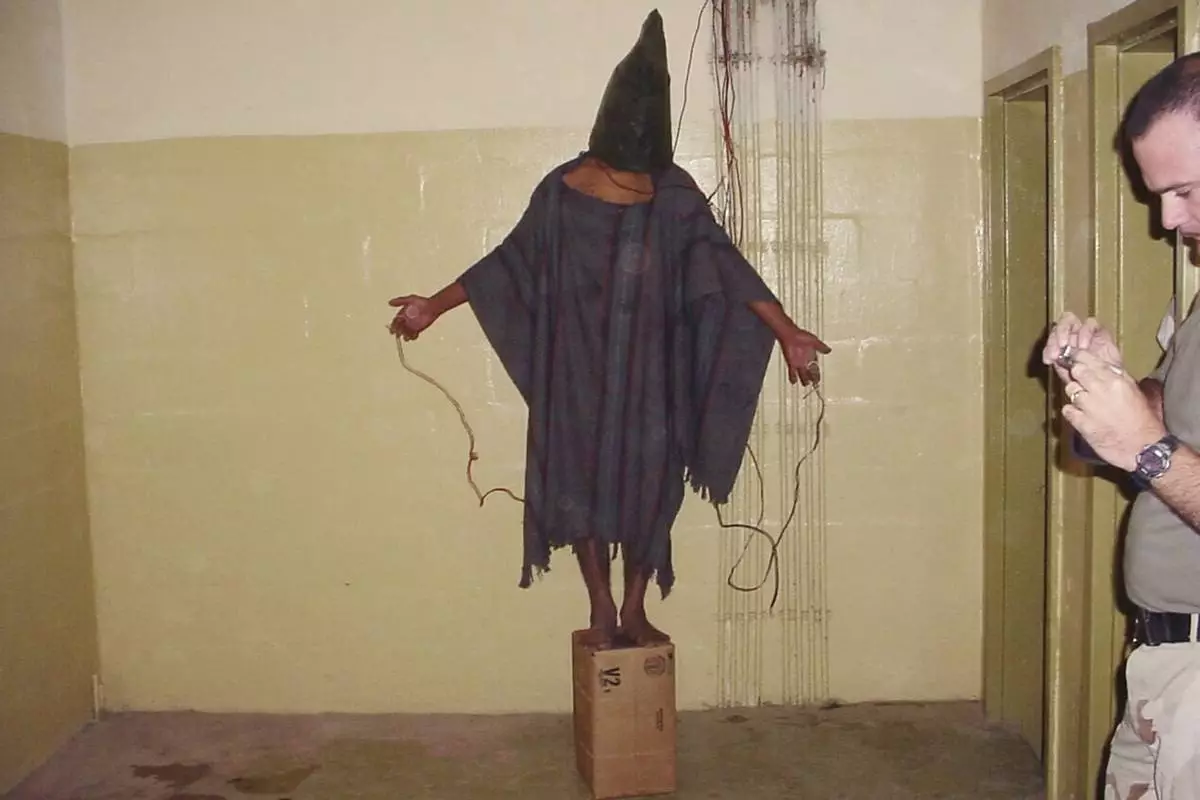
FILE - This late 2003 photo obtained by The Associated Press shows an unidentified detainee standing on a box with a bag on his head and wires attached to him in the Abu Ghraib prison in Baghdad, Iraq. A trial scheduled to begin Monday, April 15, 2024, in U.S. District Court in Alexandria, Va., will be the first time that survivors of Iraq’s Abu Ghraib prison will bring their claims of torture to a U.S. jury. Twenty years earlier, photos of abused prisoners and smiling U.S. soldiers guarding them shocked the world. (AP Photo, File)
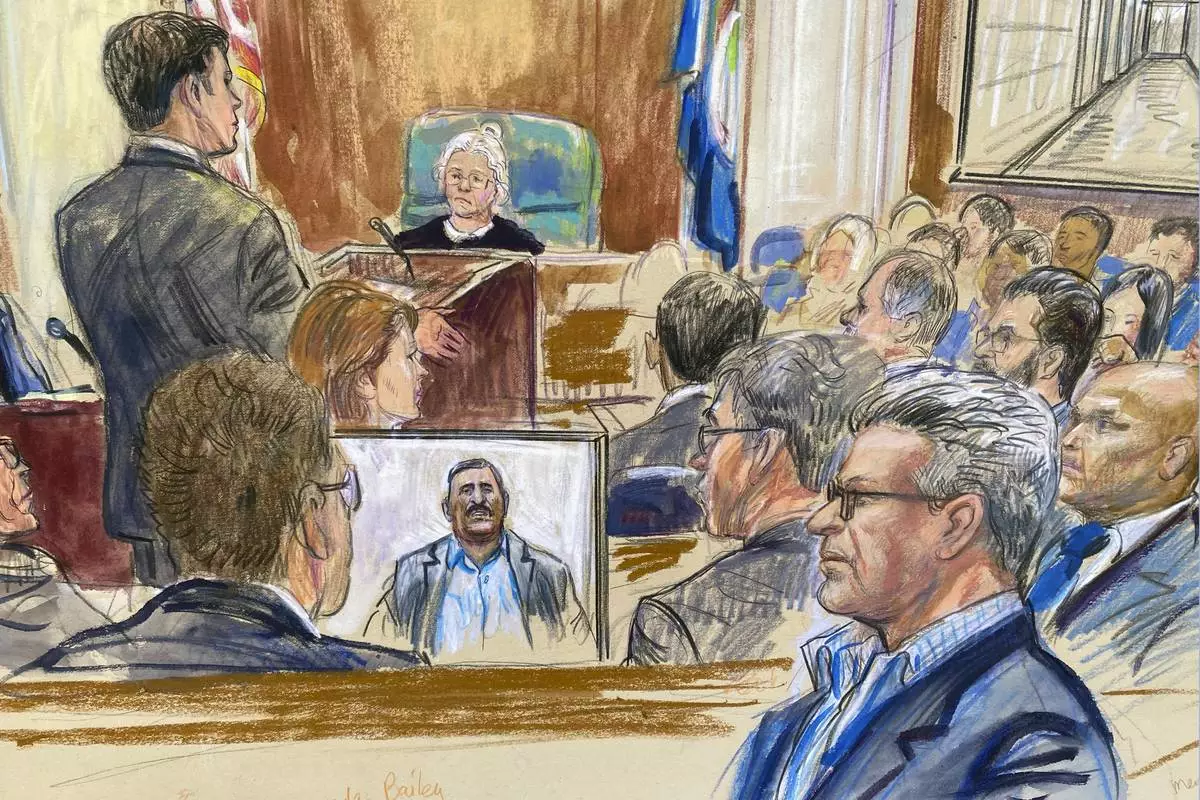
This artist sketch depicts Salah Al-Ejaili, foreground right with glasses, a former Al-Jazeera journalist, before the U.S. District Court in Alexandria, Va., Tuesday, April 16, 2024. Al-Ejaili, a former detainee at the infamous Abu Ghraib prison, has described to jurors the type of abuse that is reminiscent of the scandal that erupted there 20 years ago: beatings, being stripped naked and threatened with dogs, stress positions meant to induce exhaustion and pain. (Dana Verkouteren via AP)
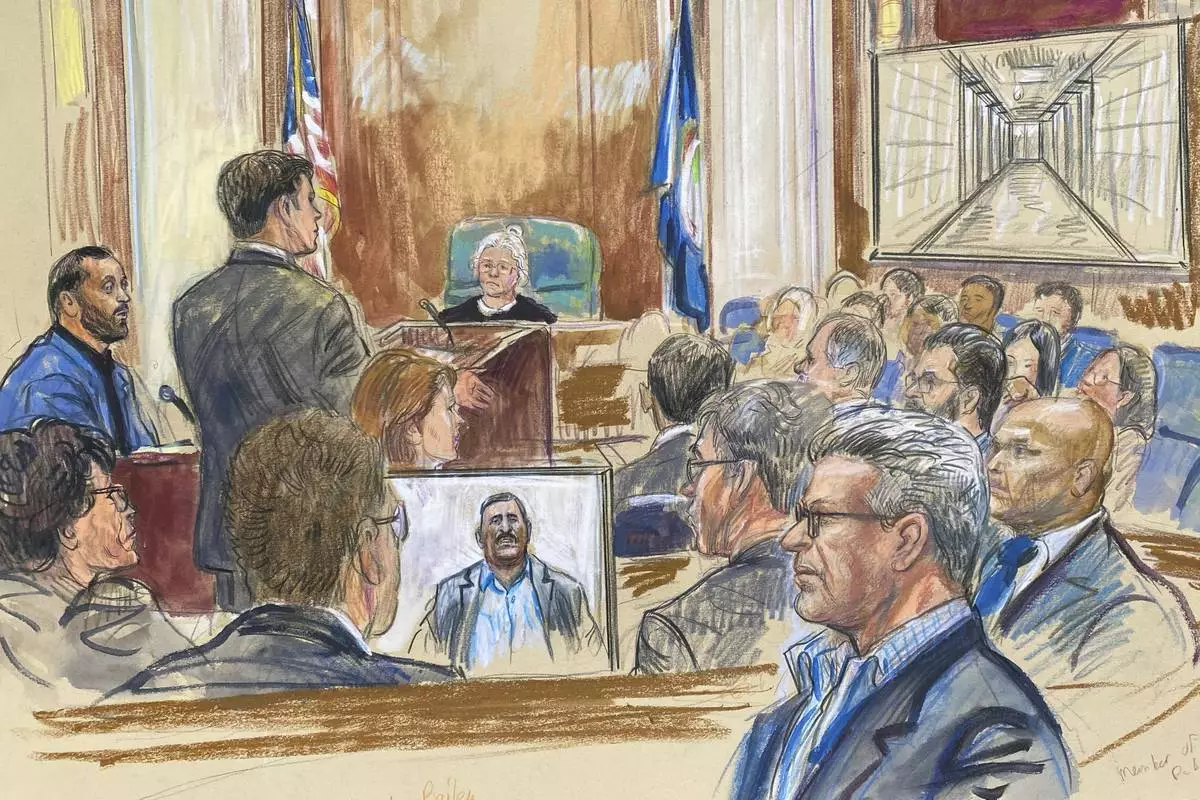
This artist sketch depicts Salah Al-Ejaili, foreground with glasses, a former Al-Jazeera journalist, before the U.S. District Court in Alexandria, Va., Tuesday, April 16, 2024. Al-Ejaili, a former detainee at the infamous Abu Ghraib prison, has described to jurors the type of abuse that is reminiscent of the scandal that erupted there 20 years ago: beatings, being stripped naked and threatened with dogs, stress positions meant to induce exhaustion and pain. (Dana Verkouteren via AP)
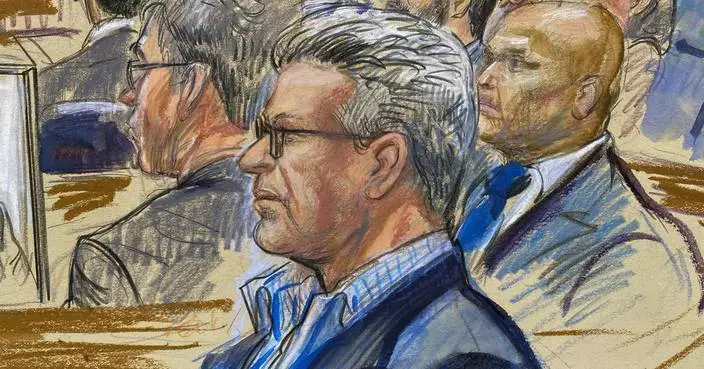
Jury deliberating in Iraq Abu Ghraib prison abuse civil case; contractor casts blame on Army
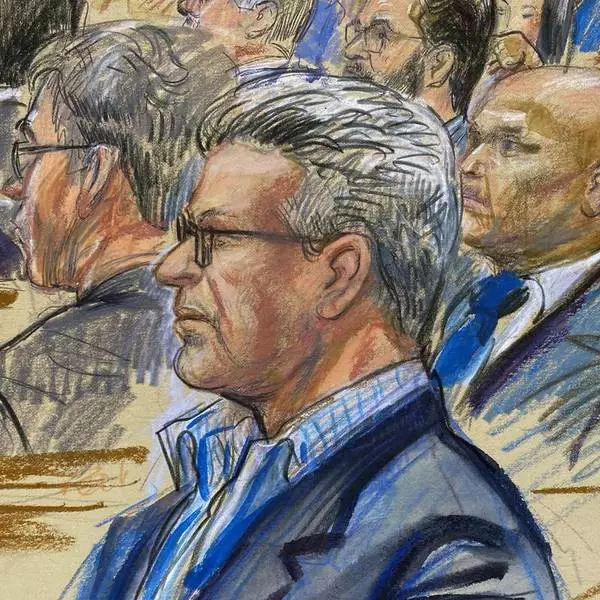
Jury deliberating in Iraq Abu Ghraib prison abuse civil case; contractor casts blame on Army
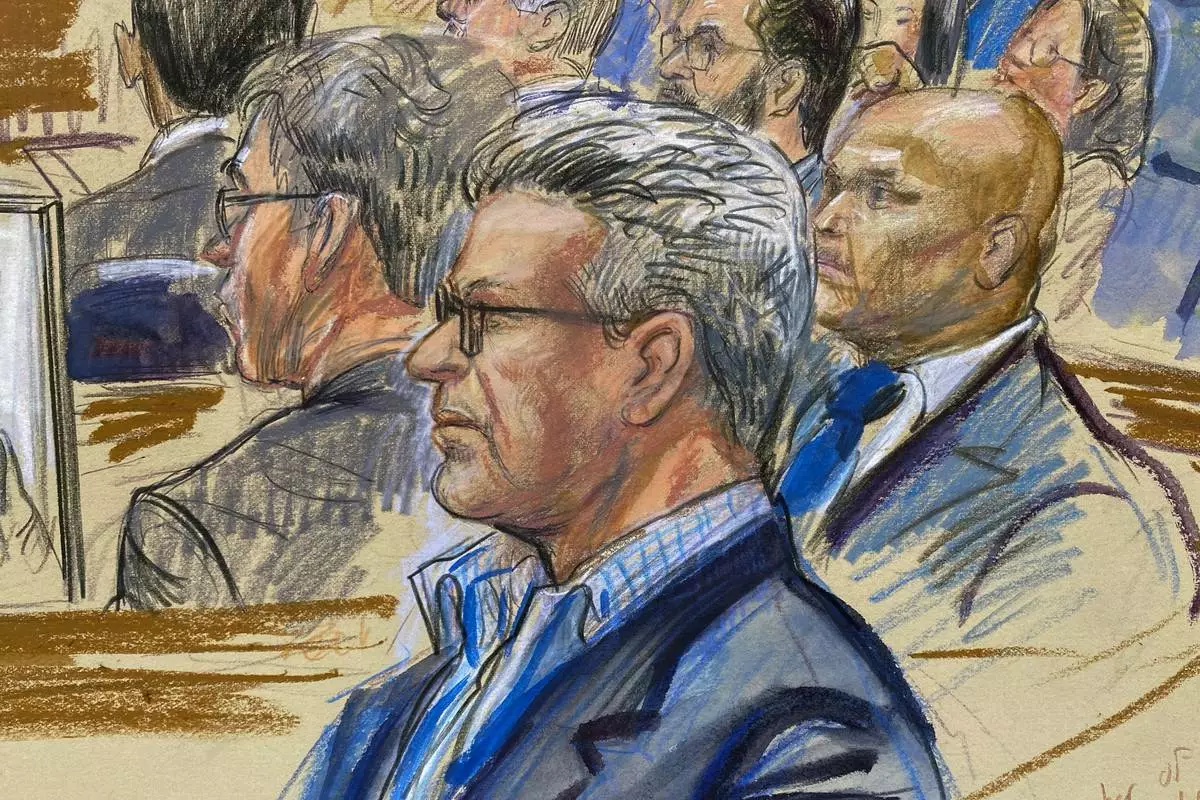
This artist sketch depicts Salah Al-Ejaili, foreground with glasses, a former Al-Jazeera journalist, before the U.S. District Court in Alexandria, Va., Tuesday, April 16, 2024. Al-Ejaili, a former detainee at the infamous Abu Ghraib prison, has described to jurors the type of abuse that is reminiscent of the scandal that erupted there 20 years ago: beatings, being stripped naked and threatened with dogs, stress positions meant to induce exhaustion and pain. (Dana Verkouteren via AP)














